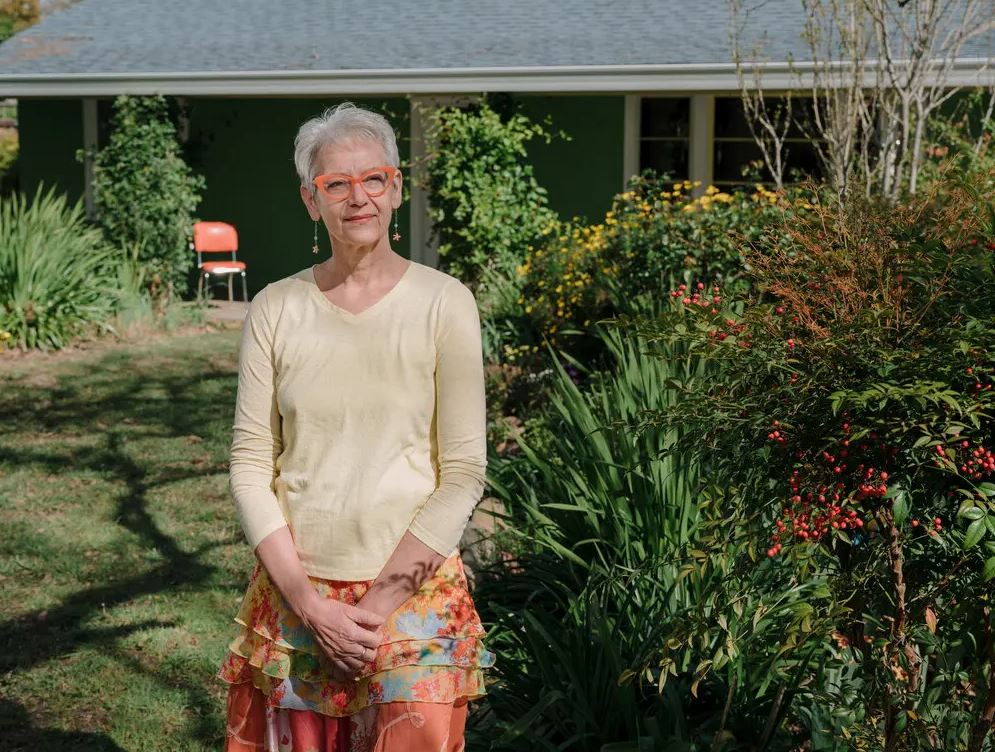Molly Stuart’s employment at the community college where she had been working came to an end at the end of 2019. She said, “Usually I’d just get a new job, but then Covid happened.” She waited it out on unemployment benefits, then gave up and retired.
She acquired the three-bedroom ranch home on an acre of property in Sacramento County, California, 18 years before she attempted to refinance it in 2021.
However, she was turned down for a mortgage. She said, “I wasn’t able to get a refinance because I didn’t make enough money.” It was really annoying, indeed.
Nonetheless, this is not an isolated incident. Recent research has found that despite older persons having greater credit scores than any other age group, they are still far more likely to be refused for most types of mortgages. It makes it more difficult for retirees in the United States to use their home equity to pay for unexpected medical bills, replace a lost spouse, or make other necessary house improvements.
The majority of the savings of retirees are invested in homes. In 2019, government statistics showed that homeowners aged 65–74 had home equity equal to around 47% of their net worth, while homeowners aged 75+ had home equity equal to 55% of their net worth. It represented about 75% of the wealth of Black homeowners aged 62 and older.
Lori Trawinski, director of finance and employment at the AARP Public Policy Institute in Washington, pointed out that a home is not a financial asset. “It’s not an asset until you sell it or get a loan against it.”
Economist at the Federal Reserve Bank of Philadelphia Natee Amornsiripanitch used data from the Home Mortgage Disclosure Act covering the years 2018 through 2020 to publish a study in February. He discovered that the rate of rejection increased consistently with age, with a noticeable spike occurring for those above the age of 70.
He said that 17.5% of all age groups had their refinancing applications denied. However, there were statistically significant variations in the rates for those in their 60s (over 19%) and those in their 70s and beyond (20%).
According to Alicia Munnell, director of Boston College’s Center for Retirement Research, which reprinted Dr. Amornsiripanitch’s work, the study’s methodology accounted for credit ratings, property kinds, and economic and demographic characteristics. He’s taking a look at the wealthy and the poor.
Lenders may evaluate age if they believe it is relevant to creditworthiness, despite the fact that the federal Equal Credit Opportunity Act has long barred discrimination based on age (as well as race, color, religion, national origin, sex, and marital status).
For instance, Dr. Amornsiripanitch found that “insufficient collateral” was given as the reason for more than half of lenders’ denials of applicants aged 65 and more. He hypothesised that the lenders didn’t see the value in those properties that the applicants did since the owners were likely older and hadn’t kept up with necessary upkeep.
The mortality risks of their senior customers are likewise a concern for lenders. Dr. Munnell emphasised that “someone dying is really inconvenient to a lender and can be costly” over the life of a 30-year loan. The mortgage lender or bank will likely re-lend the money at new, lower interest rates if the mortgage is paid off early. The bank might be sued if foreclosure proceedings begin after the owner of the property has passed away.
Lenders are concerned about Ms. Stuart’s expected lower income now that she is retired. Teresa Ghilarducci, a labour economist at The New School for Social Research in New York City, said, “People who are employed are lower risk than the unemployed.” After retirement, it’s more challenging to acquire a mortgage.
Because today’s seniors are more likely to have debt, and greater debt, than their predecessors, this is especially true. Their debt-to-income (D.T.I.) ratios will change as a result of this.
In contrast, more than 21 percent of applicants over the age of 75 in 2020 were rejected cash-out refinances that pay a lump amount despite the product’s popularity during the recent era of growing property values and super-low interest rates.
Commercial lenders, the government funded Fannie Mae and Freddie Mac, and federal organisations like the F.H.A. and the Department of Housing and Urban Development would need to “collaborate” to alter these evaluations, as stated by Dr. Zhu.
Ms. Stuart may have benefited from this strategy due to her large wealth but low post-retirement income. She tried to refinance but was rejected down, so she paid as much as she could (6 months) on her mortgage in advance using her funds. She may decide to do it again if the monthly payment pressure is too much.

